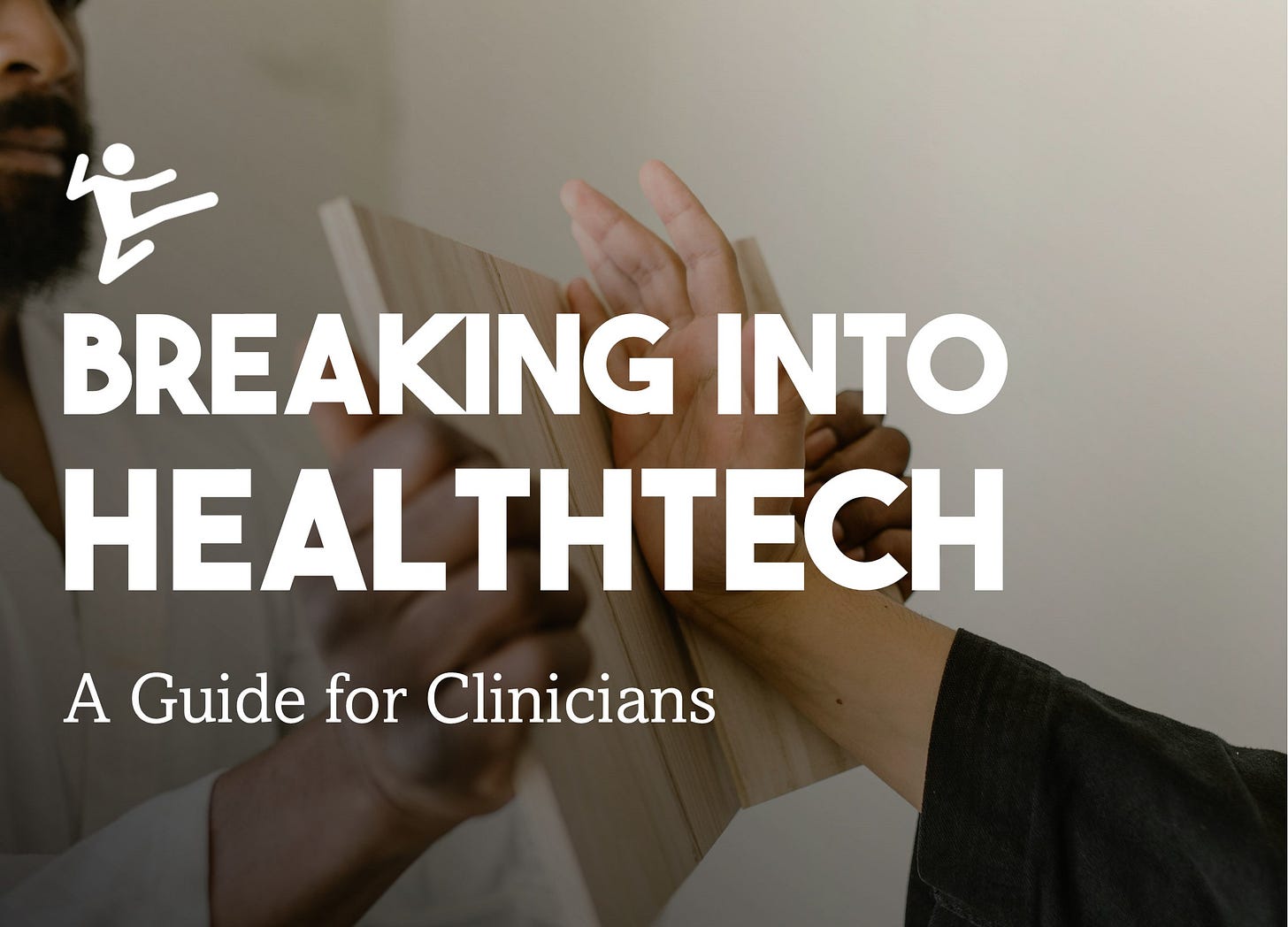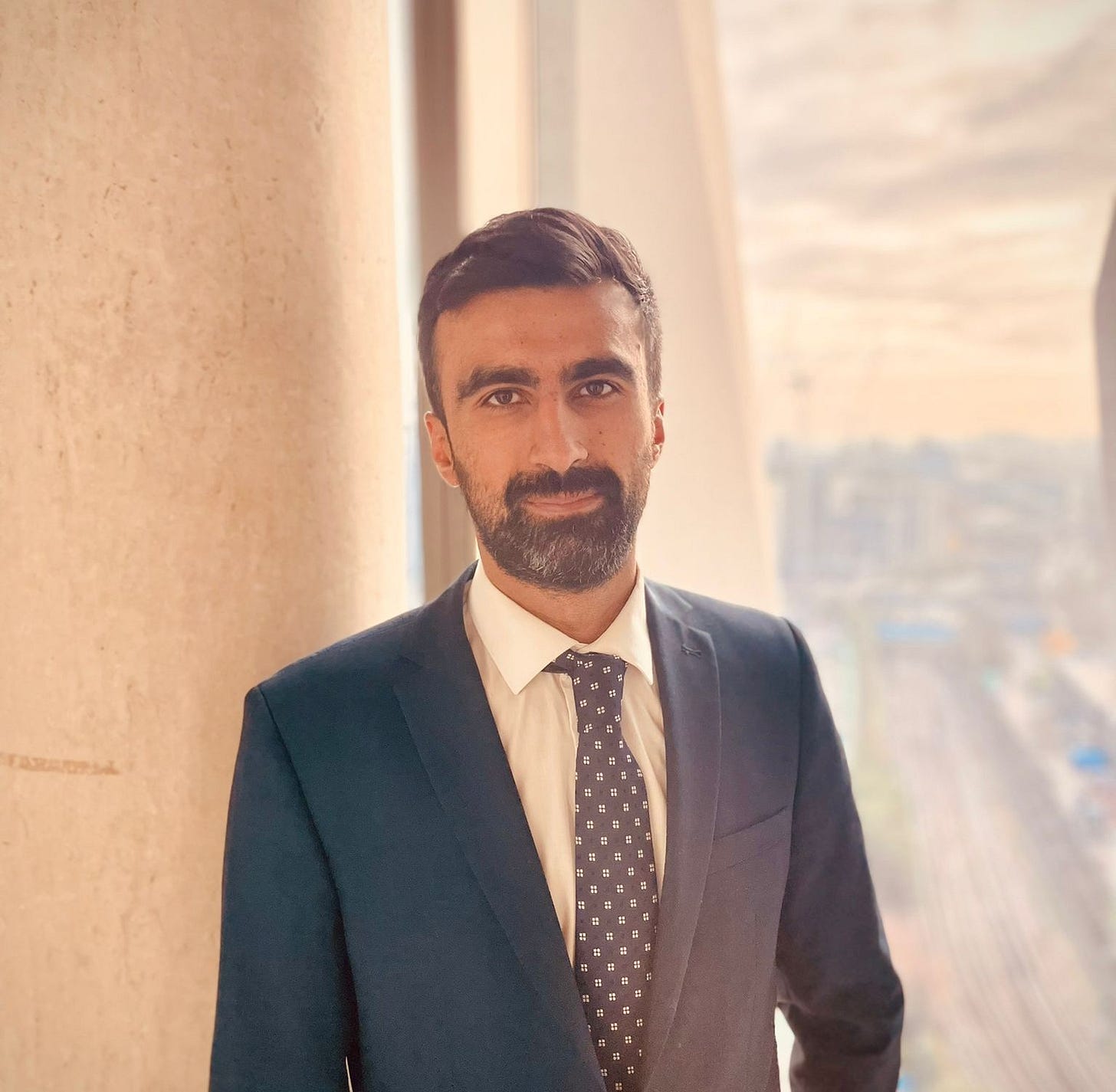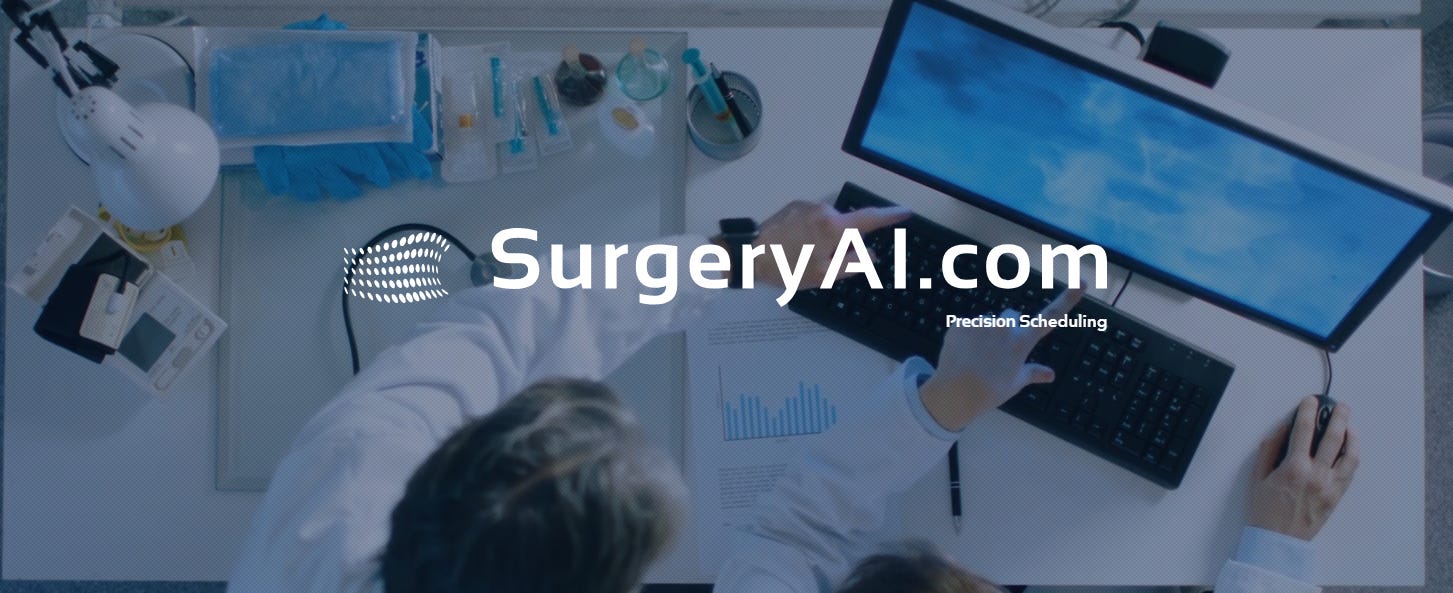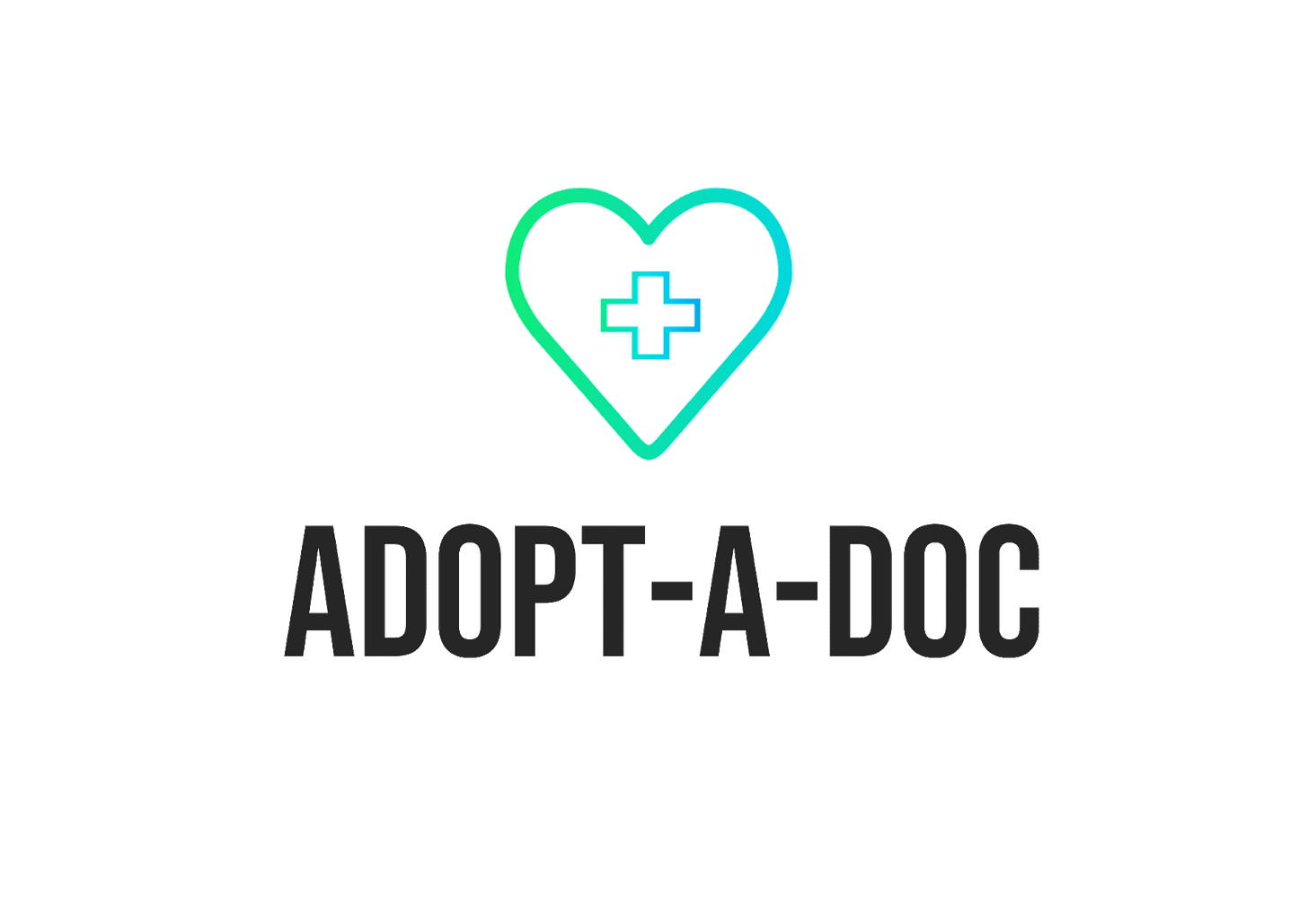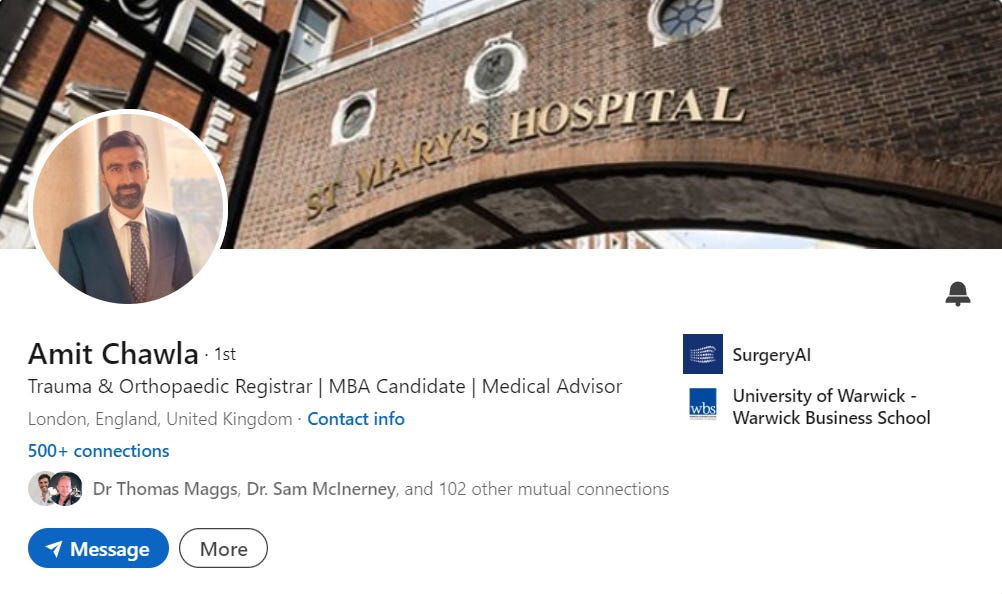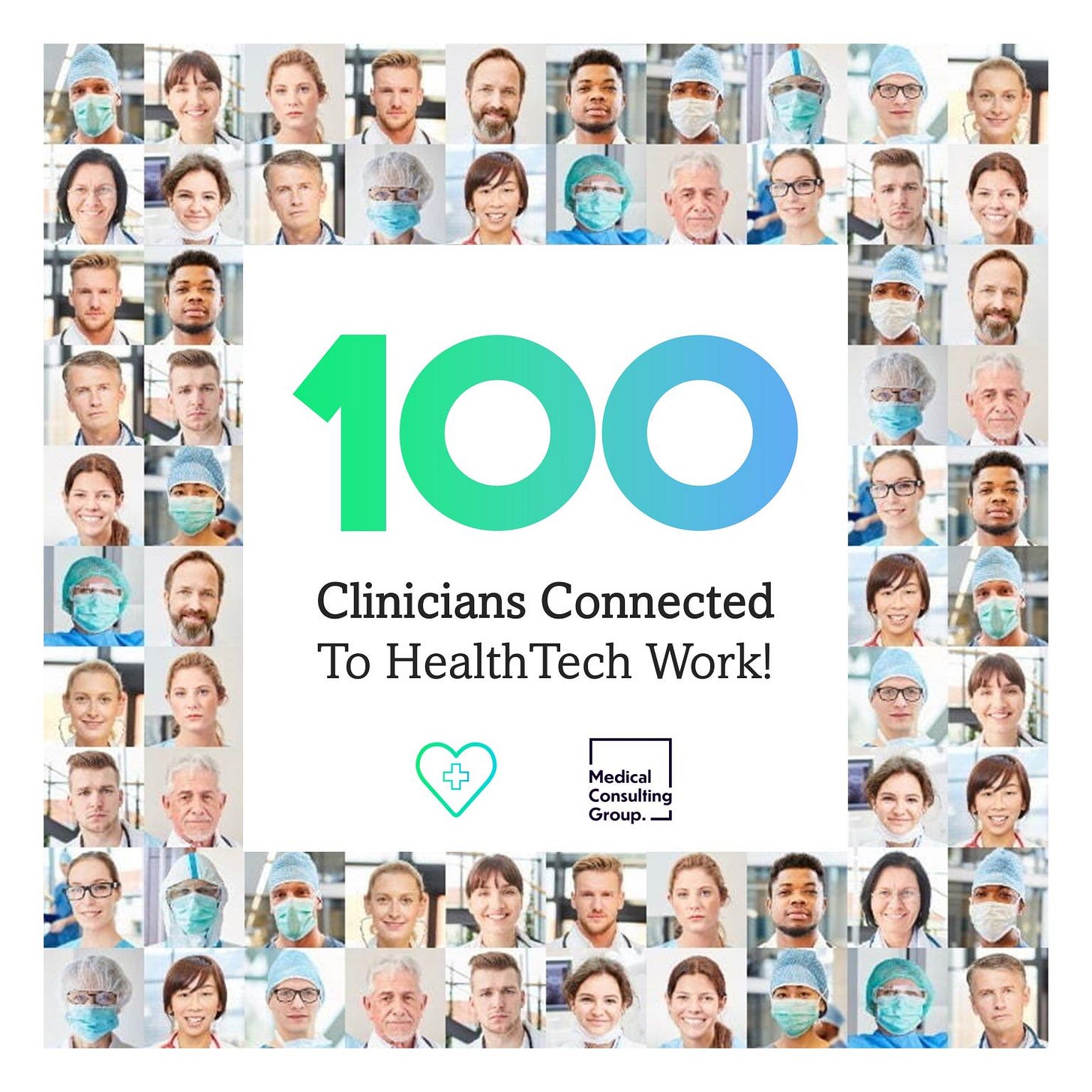How to break into HealthTech as a clinician.
A practical guide on how to navigate the HealthTech industry.
Understanding the HealthTech Ecosystem.
One of the most common questions we inevitably receive is - How should a clinician find their start in the HealthTech industry?
If you ask 100 different people this, you will likely get 100 different answers.
This is because the pathway into HealthTech is often a very squiggly one.
(More squiggly than a Doctor’s handwriting XD)
Having said that, we hope to be able to offer you some insights as to what HealthTech founders/companies are looking for - having worked with so many of them over the past few years.
The first step is to understand that HealthTech as a term is incredibly broad.
It could range from digital apps, telemedicine platforms, wearables/medical devices to complex AI systems.
Having a clear idea what your areas of interest are and which parts of the industry you are hoping to work in helps you narrow down your search.
Do what you are passionate about.
Look for companies working in areas you are passionate about, rather than job titles you think you want. In HealthTech people often have diverse roles that require them to wear many hats, so open your mind to opportunities that may be outside your comfort zone if they are in an area you care about.
When considering which parts of HealthTech may interest you, it is worth noting that there are many companies offering hybrid solutions combining digital therapeutics, e-pharmacies and telemedicine platform in a more integrated fashion to deliver treatment. (We call them Vertically Integrated Micro-Providers or VIMPros for short).
Secondly, understanding what functions HealthTech companies require clinical expertise with.
There are a few business critical functions specific to HealthTech businesses akin to major organ systems in the body that need to be met which clinicians are able to fulfil well. Amongst them are:
Clinical safety and governance
This could mean serving as a clinical safety officer to ensure that the product meets DCB0129 requirements and has been critically evaluated to ensure safety.
It could also mean building clinical protocols and what-to-do-when-things-go-wrong for a healthcare company with a service delivery component.
Clinical evidence generation
Do not underestimate just how complex this process can be.
The majority of founders often do not have an academic background - if you have experience setting up QI projects or clinical studies, this is highly valuable.
Regulatory approval and compliance
For some regulatory submission, there is a need for a clinical evaluation plan which ties into the above. Some standards such as the mandatory DCB0129 require a clinician to serve as the clinical safety officer to sign off the documentation, and even for HealthTech businesses outside of these restrictions, a clinician’s analytical skills can be very useful in the overall maintenance of high product standards.
Sales and Marketing
It shouldn’t come as a surprise that it is much easier for a clinician to sell to other clinicians or those within the health system. Familiarity and speaking the same language helps break down barriers and lower their defences.
We note that founders often like to bring their clinicians into major sales calls, or even fundraising, as it really helps them with their credibility (and gives them a confidence boost!)
Clinical Content Creation
We live in an attention economy. The majority of HealthTech companies will want some form of health content creation to:
A. Build up brand credibility and visibility
B. To serve as lead generation for their products
Product design and advisory
Probably the most time consuming one of all.
This is when you are required to work closely with their developing team to ensure that their product fits with the user experience of clinicians or patients + is clinically accurate and safe.
This usually comes with a more substantial role and you can expect many hours of work with this.
Don’t underestimate the value of NHS managerial, research and innovation project experience. Knowledge of how the NHS works at a deeper level can be invaluable to your learning, and can be extremely attractive to private sector organisations in the future.
And once you have nailed down the area and the role within HealthTech you are looking for -
The third step is to PUT YOURSELF OUT THERE.
What this means is to increase your visibility amongst those in the industry.
It means fostering relationships and networking.
A common theme you find when speaking to those with substantial roles in HealthTech is that they often found those roles from the relationships they form through connections or events.
There are many ways to go about this:
Attending notable HealthTech conference and events (Speaking in them ideally - either in a panel or keynote speeches)
Maintaining an active presence on LinkedIn + networking with industry leaders and other HealthTech clinicians
Attending networking fellowships such as the BiteLab fellowship
Applying directly to open HealthTech roles
Speak to as many people in the industry as you can who have held a variety of roles. Clinician roles in HealthTech can be extremely variable, and understanding what different roles do can ensure you apply and find opportunities that you will enjoy and grow in for the long term.
From experience, most early stage HealthTech start-ups often rely on word of mouth referral or direct outreach to find their first few clinical hires.
Whereas more established companies (often Series A and beyond) will have a more formal route of application to open roles.
But Ultimately,
People hire people, not just CV’s.
HealthTech is still a small industry, and clinician roles are often very general when they are advertised as the experiences and career journeys of candidates are often very varied. This often leads to companies hiring people they want to work with, so reach out to people directly and try to build genuine human connections where possible.
One more piece of important advice:
Be persistent.
Most people start reaching out to a few people or go to the odd conference, then give up. That is the exact time when you need to keep going!
Try to pick a time in your career where you know you have time for a sustained push. A big push of doing lots of outreach for a short, sustained period is more likely to be effective than similar amounts of effort dispersed in small bursts. Your network connections multiply when they interact, and that only happens when you make a sustained effort.
🩺 Clinician spotlight – Dr Amit Chawla🔦
In keeping with the theme of this month’s Newsletter, we are treated to Dr. Amit Chawla’s personal experience foraging into the HealthTech industry.
Below is an interview of how he found his start.
1. Hi Amit, Thanks for taking the time today for this. Could you tell us more about yourself?
I am a trainee Orthopaedic surgeon (resident) in London, currently undertaking a healthcare themed MBA at Warwick Business School. I have a special interest in service improvement and digital innovation, particularly within surgery and musculoskeletal health.
This inspired my venture into HealthTech, where through networking with like-minded clinicians, I was able to form valuable connections with different organisations. Currently I have a freelance role as a digital health consultant for Adopt-a-doc, and I am a medical advisor to an innovative surgical scheduling start-up, SurgeryAI.
2. Could you tell us more about your work with SurgeryAI?
SurgeryAI is an exciting surgical health-tech start-up that have developed an AI powered program, which generates optimal theatre schedules, based on past team performance, patient characteristics and kit availability. I was introduced to SurgeryAI by Derrick Khor and via his Adopt-a-doc networking platform.
My experience with operating rooms and day-to-day challenges as a surgeon were valuable to them in fine-tuning their product, whilst I recognised the potential of their innovation to have a significant impact on surgical efficiency.
We agreed terms for me to onboard as a part-time medical advisor. In our initial meeting, we clearly outlined the expected time commitment, which in my case was equivalent to 2 working days a month. We also settled on remuneration, which is usually either an agreed hourly rate or equity allocation. Terms were formalised in a contract signed by both parties.
My contributions to SurgeryAI have included reviewing their product and suggesting modifications based on my surgical experience. I have also introduced them to other surgical and managerial colleagues, and like-minded HealthTech founders within my network. This has allowed them to broaden their experience with the NHS market and form valuable connections. Furthermore, I have attended meetings with other key stakeholders to offer a clinical perspective, and am assisting them towards securing pilots in surgical departments.
My schedule has been flexible, averaging 3 to 4 hours each week, but varying depending on my work schedule and their requirements. Being flexible is key to delivering this role, alongside being approachable and willing to help.
A great benefit of being a medical advisor is that the role can be fulfilled almost entirely remotely, although I have enjoyed meeting the team face-to-face on a number of occasions. There is also no additional training requirement for an advisory role.
3. Were there any challenges that you face in your advisory role?
Some challenges I have encountered as an advisor are:
Witnessing the roadblocks and bureaucracies that create difficulty in incorporating HealthTech solutions in hospitals.
Time management alongside a full-time surgical training programme - however the flexibility offered by most start-ups accommodates for this.
It’s not the most financially rewarding ‘side hustle’. Whilst there is a small chance that your chosen start-up will develop into a unicorn company, realistically there is no guaranteed income, and other avenues such as locum work, aesthetics and sports medicine may be able to provide more regular earnings.
However, my overall experience has been largely positive and rewarding. Working with a start-up, especially in a field of interest, is hugely rewarding and feels like you are on the pathway to making a positive impact to practice. The connections formed, exposure to different stakeholders across the healthcare ecosystem, and understanding of the procurement process in the NHS is also extremely beneficial.
4. How did you find your start in the first place?
Through multiple conversations on LinkedIn and networking events. I was especially fortunate to meet with Dr Derrick Khor, who really propelled my HealthTech exposure through his well-connected Adopt-a-doc platform.
I also made an active effort to attend both virtual and in-person networking events organised by colleagues on LinkedIn and through my MBA program.
5. What practical advice will you give others looking to do the same?
Network and network! There are plentiful opportunities available to engage in the HealthTech space for those who actively seek them. Make your interest clear by signing up to relevant networks (such as MCG and Adopt-a-doc!) and developing a focussed LinkedIn profile.
Reach out to those with roles that interest you, and don’t be discouraged by being ignored. HealthTech is a rapidly growing sector, hence professionals are busy, yet they are mostly extremely eager to collaborate. Don’t underestimate the valuable insight you can offer as a doctor.
Finally, be sure to capitalise on the many free online resources to further educate yourself around topics such as AI and NHS regulations/compliances, which will further increase the value you can offer to a start-up.
6. What is something about HealthTech consulting you wish more clinicians would know more about?
Two main things:
It doesn’t need to take much of your time. I have continued to work full time as a surgical trainee alongside my HealthTech ventures. Most start-ups are willing to be very flexible to accommodate your insight, whether that’s one day a week to a few hours a month. Just make sure you’re clear about your availability in initial discussions and are remunerated accordingly.
You don’t need additional qualifications or experience. Whilst this may help with specific roles, such as a clinical safety officer, generally your main asset will be your medical knowledge. However, one must be willing to continue to develop their knowledge and pick up skills from each encounter with different stakeholders.
7. What are you most excited to work on/looking for in future work opportunities?
The power of HealthTech driven solutions is obvious and will continue to drive service improvements within healthcare. None more so than in surgery and MSK, where digital innovations will play a crucial role in tackling significant challenges such as the waiting list, and redesigning key services such as pre-assessment and physiotherapy.
I look forward to applying my surgical knowledge and MBA skills to offer value to pioneering start-ups in this space, hopefully improving the conditions my colleagues and I will be working with in the future.
👀 This Month at MCG
We hit our goal of placing 100 clinicians in HealthTech opportunities!
It has been a wonderful journey so far, and we couldn’t have done it without the wonderful clinicians who bring so much energy, enthusiasm, and experience to every HealthTech meeting we conduct. The value you deliver to the clients we work with cannot be understated. What's more I am always so happy to hear how much those clinicians enjoy the opportunity to help, and for their insights to be truly heard and valued.
July was a huge month in the MCG team’s journey:
We placed over 30 clinicians,
Held our first LinkedIn Live event,
Launched two new product lines (Clinical Pathway Mapping and Regional Expert Match).
We are constantly adapting our offering to put clinicians and businesses in the best possible positions to deliver value for one another.
For those of you in the network who have not yet had an opportunity to participate, do not worry. We continue to grow not only the volume of involvements, but also the breadth of those clinical roles included in projects.
To name but a few of those included for the first time this month, ICB commissioners, PCN Medical Directors, Community Pharmacists, GP Patient Relations Managers and Digital Transformation Leads. This list will continue to grow as we know that all of our network have value to provide to the HealthTech industry.
📢 Call to Action
If you are a HealthTech Start-up looking for clinical collaboration for your company, please feel free to reach out to us at:
thomasmaggs@medicalconsultinggroup.co.uk
tombracewell@medicalconsultinggroup.co.uk
derrickkhor@medicalconsultinggroup.co.uk
If you are an ideas person and connector, and think there are teams or people we should meet/feature/or be working with - please also reach out!
✌️Tom ✌️ Derrick ✌️Tom ✌️




